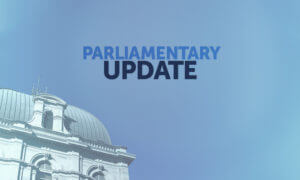The Law Council of Australia has announced its support for Constitutional recognition of First Nations peoples “unwaveringly”.
A statement released yesterday said that the release of the question and proposed Constitutional amendment to establish a Voice to Parliament and the Executive was a welcome step closer to the necessary and overdue recognition of First Nations peoples in the Australian Constitution.
“The Constitutional enshrinement of the Voice is necessary to meet the aspirations of the Uluru Statement, and to respect the direct wishes of First Nations peoples,” Law Council President Luke Murphy said. “Our nation’s support of a Constitutionally enshrined Voice will represent an acceptance of the invitation extended to all Australians in good will by First Nations people through the Uluru Statement.
“The Law Council considers that amending the Constitution to provide for a Voice is a modest step in respecting the enduring value and strength of First Nations culture; recognising the unique place First Nations occupy in Australia’s history as its Indigenous peoples; and overcoming an indisputable legacy of dispossession and disadvantage since European settlement.
“The Law Council considers that the Voice is a necessary and overdue advancement of the right of First Nations peoples to self-determination. The right to self-determination is a fundamental principle of international law.
“Too often the voices of First Nations persons go unheeded amidst the formal, complex and time-critical processes of lawmaking and implementation. This can, and does, have disastrous consequences.
“Empowering First Nations peoples and enabling their voice to be heard on policies and legislation that impact them will help ‘close the gap’ and address the significant disadvantage First Nations peoples experience across several key indicators such as life expectancy, health, household income, experiences of violence and education.
“A Bill containing the text of the proposed amendment to the Constitution will be introduced to the Parliament next week. The Law Council looks forward to making a submission to the joint parliamentary committee inquiry which has been foreshadowed.”







One Response
You’d think lawyers, of all people, would know the devil is in the details. Some mushy, vague, feel-good statement might make the members of the Law Council feel good about themselves, but this proposed change is not without significant consequences. Indeed, without even getting to first base we can foresee the following problems:
1. The degradation of the centuries-long principle of an elected, representative parliament. This proposal gives a specific class of people (who are a mere 3.2% of the population) special privileges compared to the rest of the population, by allowing a constitutionally entrenched body to make representations to parliament and the executive.
2. Such a body is bound to create resentment among those who do not get those same special privileges.
3. The limits of this body’s power are undefined.
4. We are told that this body’s existence will somehow improve the lot of Australians of a specific class. This is in spite of the fact that all levels of government have been making enormous efforts and spending uncountable billions of taxpayer dollars to do just that for decades. And it hasn’t worked.
5. How can such a body claim to speak for all Indigenous and Torres Straight Islander Australians when the 15 federal parliamentarians who also happen to be Indigenous cannot agree amongst themselves when it comes to Indigenous issues?
6. Part of this body’s function will be to facilitate “truth telling”. Does this really mean the creation of a constitutionally entrenched body which will use its position to harangue “other” Australians with emotional blackmail for alleged events they had nothing to do with?
7. Is there a safeguard to ensure this body will not be used as a political hammer, to bludgeon political enemies (guaranteed to be on the conservative side)?
8. Just how much money is it going to cost to establish and maintain?
9. How is it progress to legally divide Australians along racial lines? Surely this is a form of racism?
But never mind the practical details. So long as the Law Council can virtue signal, that’s what counts.